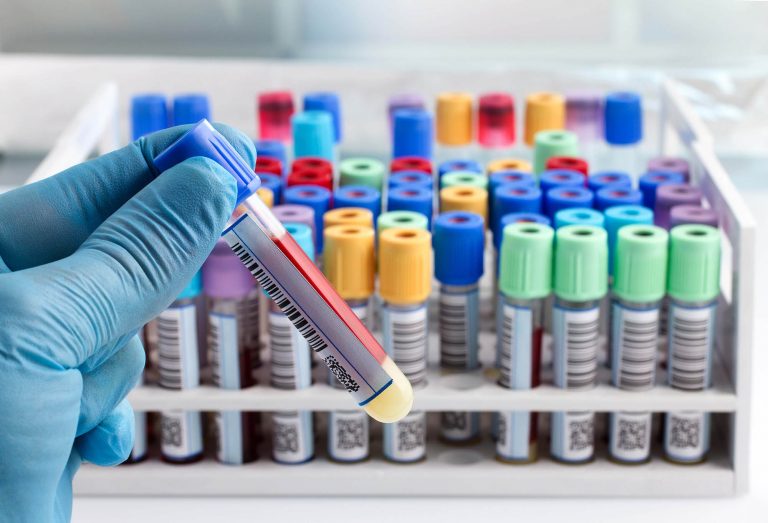
Have you ever wondered why doctors often request blood tests even when you’re feeling perfectly fine? That’s because your blood can reveal a lot about your health often before symptoms even appear. Whether it’s your yearly checkup or a step toward diagnosing an issue, routine blood tests are powerful tools for early detection, prevention, and treatment.
In this blog post, we’ll explore the top 10 most common blood tests, what they check for, and what your results might mean. Understanding these tests can help you take charge of your health and make informed decisions.
1. Complete Blood Count (CBC)
The Complete Blood Count, or CBC, provides an overview of your general health by measuring the different components of your blood. It examines red blood cells, which carry oxygen; white blood cells, which help fight infections; hemoglobin and hematocrit levels, which show how well your body is transporting oxygen; and platelets, which help your blood to clot.
This test can help detect anemia, infections, immune system disorders, and even certain blood cancers. For instance, if you’ve been feeling unusually tired or weak, a CBC might reveal low hemoglobin levels, indicating anemia. It’s also useful in monitoring your body’s response to certain treatments.
2. Fasting Blood Glucose Test
The fasting blood glucose test measures the amount of sugar in your blood after you’ve gone without eating for 8 to 10 hours. It’s a key test for identifying diabetes and prediabetes, even before symptoms arise.
High levels can indicate that your body isn’t processing glucose effectively, which might mean insulin resistance or diabetes. Low levels could signal hypoglycemia. This test is especially important if you have a family history of diabetes or if you’re experiencing symptoms like excessive thirst, frequent urination, or fatigue.
3. Lipid Profile (Cholesterol Test)
A lipid profile evaluates the levels of cholesterol and triglycerides in your blood. It includes total cholesterol, LDL (the “bad” cholesterol), HDL (the “good” cholesterol), and triglycerides.
This test helps assess your risk for heart disease and stroke. Elevated LDL or low HDL levels can lead to plaque buildup in the arteries, increasing the risk of cardiovascular problems. If you’ve been told you have high cholesterol or if heart disease runs in your family, this test is essential for monitoring and managing your heart health.
4. Liver Function Tests (LFTs)
Liver function tests evaluate how well your liver is working by measuring enzymes, proteins, and bilirubin levels. These include ALT, AST, ALP, GGT, bilirubin, and albumin.
Abnormal results can indicate liver inflammation, damage, infection, fatty liver disease, or conditions like hepatitis and cirrhosis. These tests are especially useful if you’ve been exposed to viruses, take medications long-term, or consume alcohol regularly. Elevated enzymes like ALT and AST may suggest liver cell injury.
5. Kidney Function Test (Renal Panel)
The kidney function test measures substances such as creatinine and blood urea nitrogen (BUN) to evaluate how well your kidneys are filtering waste.
This test can detect early signs of kidney disease, especially in people with diabetes, high blood pressure, or a family history of kidney issues. Poor kidney function may cause symptoms like swelling, fatigue, or changes in urination. Monitoring kidney function can also help prevent more serious complications down the road.
6. Thyroid Function Tests
Thyroid tests measure levels of hormones such as TSH (thyroid-stimulating hormone), T3, and T4. These hormones regulate your metabolism, energy levels, and even mood.
Abnormal results may indicate hypothyroidism (underactive thyroid) or hyperthyroidism (overactive thyroid). If you’ve been feeling tired, gaining or losing weight unexpectedly, or dealing with mood changes, a thyroid test can help uncover the cause.
7. Electrolyte Panel
This test evaluates essential minerals in your body, including sodium, potassium, chloride, and bicarbonate. These minerals are critical for muscle function, heart rhythm, and hydration.
An imbalance in electrolytes can result from dehydration, kidney disease, or certain medications. It may lead to symptoms like muscle cramps, confusion, or irregular heartbeat. An electrolyte panel is often part of routine screenings or used to monitor those with chronic conditions.
8. Hemoglobin A1C
This test provides an average of your blood glucose levels over the past two to three months. It’s commonly used to diagnose and manage diabetes.
An A1C level above 6.5 percent typically indicates diabetes, while a range between 5.7 and 6.4 percent suggests prediabetes. This test gives a more long-term picture of your blood sugar control compared to a single fasting glucose test.
9. Vitamin D Test
The vitamin D test measures the level of this essential nutrient in your blood. Vitamin D is crucial for healthy bones, immune function, and mood regulation.
Low vitamin D levels are common and can contribute to fatigue, bone pain, and frequent illness. This test is particularly important for people who get limited sun exposure or have certain chronic illnesses.
10. C-Reactive Protein (CRP)
CRP is a marker of inflammation in the body. Elevated levels can indicate acute or chronic inflammation, which may be due to infection, autoimmune diseases, or increased cardiovascular risk.
It’s not specific to one condition but provides a valuable signal that something inflammatory may be happening in your body. Doctors often use this test alongside others to get a fuller picture of your health status.